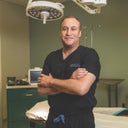Should I gain weight before my BBL? I am 5’2 and 140lbs. (Photos)
Should I gain weight before my bbl? I am 5’2 and 140lbs. For noticeable results should I gain a couple lbs? I want more projection and fuller hips. I attached my wish pic as well. Do you think this is achievable?








